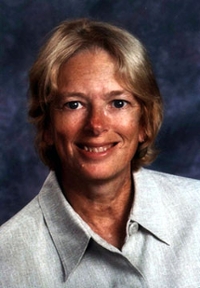Samuel D. Conte Distinguished Lecture
10-13-2005

Should Technologists Have a Responsibility to Design Products To Minimize Misuses?
Thursday, October 20, 2005
Stewart Center, Rm 322 at 3:30pm
ABSTRACT:
Several recent court decisions, some in the US and one in Australia, have suggested that technology developers have responsibility to design their products to minimize misuses of them by prospective customers. In the past, the law has imposed legal responsibility for technology designs when products pose threats to physical safety (e.g., airbags to protect drivers when accidents occur). In recent years, the entertainment industry has proposed that developers of information technologies do and should have legal responsibility for economic harms resulting from misuse of technologies, such as copyright infringement.
Although the Supreme Court in the MGM v. Grokster decision did not agree with MGM about liability premised on technology design, it did say that technology design could be taken into account when lower courts consider whether Grokster and Streamcast induced user infringements. In particular, the Court mentioned the failure to install filters to block infringing files as a possibly relevant factor. This talk will consider whether or under what circumstances the law should impose legal responsibility on technology developers based on design decisions.
BIO:
Pamela Samuelson is a Professor at the University of California at Berkeley with a joint appointment in the School of Law and School of Information Management and Systems. She is also Co-Director of the Berkeley Center for Law and Technology. She began her career as a legal academic at the University of Pittsburgh School of Law. While there she was a visiting professor at Columbia Law School, Cornell Law School and Emory Law School. She also practiced with Willkie Farr & Gallagher’s New York office.
Samuelson has written and published widely in the areas of copyright, software protection and cyberlaw. Recent publications include "The Constitutional Law of Intellectual Property After Eldred v. Ashcroft," in the Journal of the Copyright Society (2003); "The Law and Economics of Intellectual Property," in the Yale Law Journal (with Scotchmer, 2002); "Mapping the Digital Public Domain: Threats and Opportunities," in Law & Contemporary Problems (2003); "Privacy as Intellectual Property?" in the Stanford Law Review (2000); "Intellectual Property and the Digital Economy: Why the Anti-Circumvention Regulations Need to Be Revised," in the Berkeley Technology Law Journal (1999); and "A New Kind of Privacy? Regulating Uses of Personal Data in the Global Information Economy," a book review in the California Law Review (1999). She is also coauthor of Software and Internet Law, 2nd ed. (with Lemley, Merges and Menell, 2003).
In addition, Samuelson is a contributing editor of Communications of the ACM, the flagship publication of a computing professionals society with more than 75,000 members worldwide.
From 1997 through 2002, Samuelson was a fellow of the John D. & Catherine T. MacArthur Foundation. She is also a fellow of the Association of Computing Machinery. In 2001 she was appointed to a UC Berkeley Chancellor's Professorship for distinguished research, teaching and service for her contributions to both the School of Law and the School of Information Management and Systems. In 2002 she was named an honorary professor at the University of Amsterdam.
Hosted by the Purdue University Department of Computer Science. A reception will be held after the talk. For additional information please call 765-494-9431 or email piegza@cs.purdue.edu.